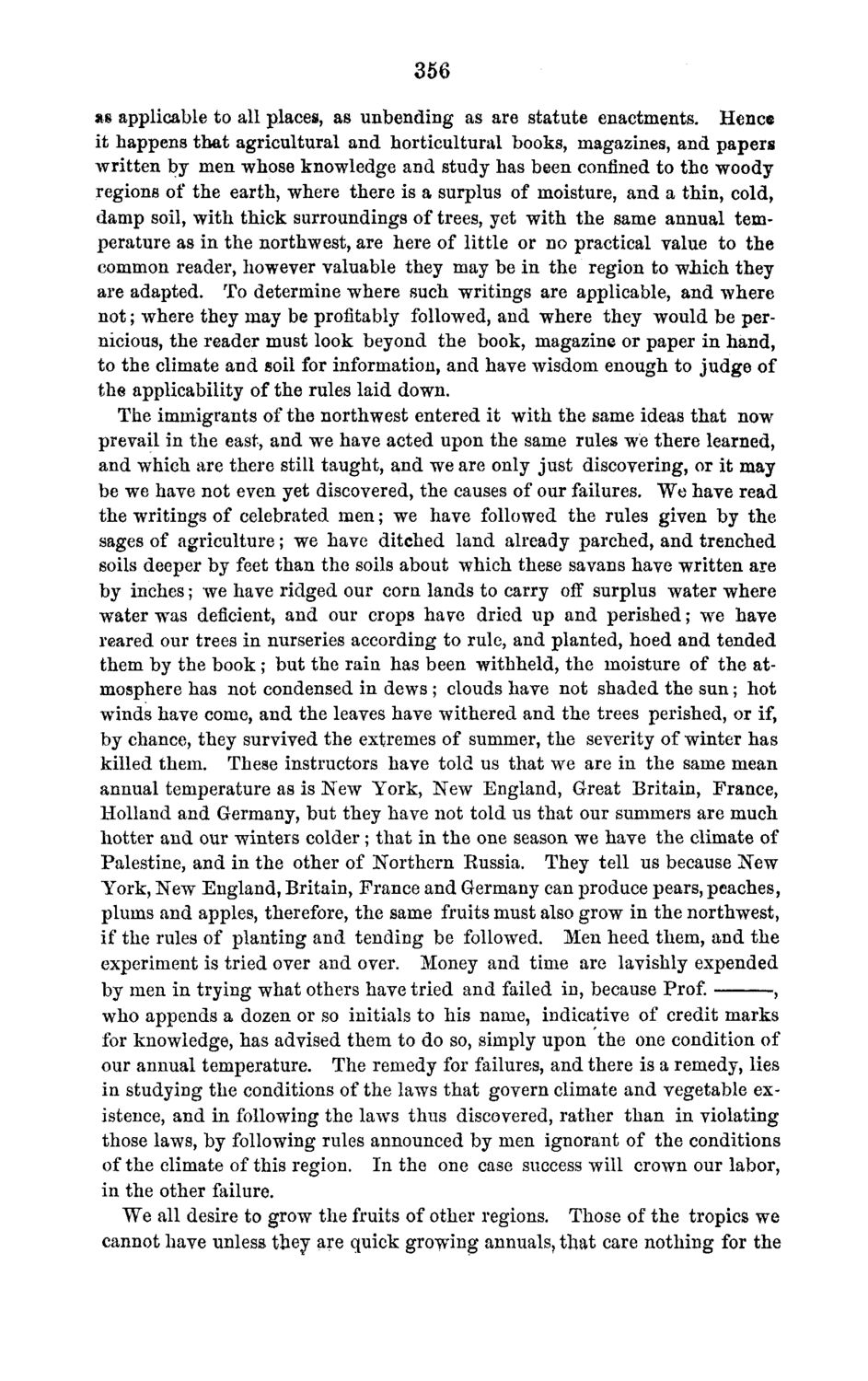| |
| |
Caption: Board of Trustees Minutes - 1870
This is a reduced-resolution page image for fast online browsing.

EXTRACTED TEXT FROM PAGE:
356 as applicable to all places, as unbending as are statute enactments. Hence it happens that agricultural and horticultural books, magazines, and papers written by men whose knowledge and study has been confined to the woody regions of the earth, where there is a surplus of moisture, and a thin, cold, damp soil, with thick surroundings of trees, yet with the same annual temperature as in the northwest, are here of little or no practical value to the common reader, however valuable they may be in the region to wJiich they are adapted. To determine where such writings are applicable, and where not; where they may be profitably followed, and where they would be pernicious, the reader must look beyond the book, magazine or paper in hand, to the climate and soil for information, and have wisdom enough to judge of the applicability of the rules laid down. The immigrants of the northwest entered it with the same ideas that now prevail in the east, and we have acted upon the same rules we there learned, and which are there still taught, and we are only just discovering, or it may be we have not even yet discovered, the causes of our failures. We have read the writings of celebrated men; we have followed the rules given by the sages of agriculture; we have ditched land already parched, and trenched soils deeper by feet than the soils about which these savans have written are by inches; we have ridged our corn lands to carry off surplus water where water was deficient, and our crops have dried up and perished; we have reared our trees in nurseries according to rule, and planted, hoed and tended them by the book; but the rain has been withheld, the moisture of the atmosphere has not condensed in dews ; clouds have not shaded the sun; hot winds have come, and the leaves have withered and the trees perished, or if, by chance, they survived the extremes of summer, the severity of winter has killed them. These instructors have told us that we are in the same mean annual temperature as is New York, New England, Great Britain, France, Holland and Germany, but they have not told us that our summers are much hotter and our winters colder; that in the one season we have the climate of Palestine, and in the other of Northern Russia. They tell us because New York, New England, Britain, France and Germany can produce pears, peaches, plums and apples, therefore, the same fruits must also grow in the northwest, if the rules of planting and tending be followed. Men heed them, and the experiment is tried over and over. Money and time are lavishly expended by men in trying what others have tried and failed in, because Prof. , who appends a dozen or so initials to his name, indicative of credit marks for knowledge, has advised them to do so, simply upon the one condition of our annual temperature. The remedy for failures, and there is a remedy, lies in studying the conditions of the laws that govern climate and vegetable existence, and in following the laws thus discovered, rather than in violating those laws, by following rules announced by men ignorant of the conditions of the climate of this region. In the one case success will crown our labor, in the other failure. We all desire to grow the fruits of other regions. Those of the tropics we cannot have unless they are quick growing annuals, that care nothing for the
| |